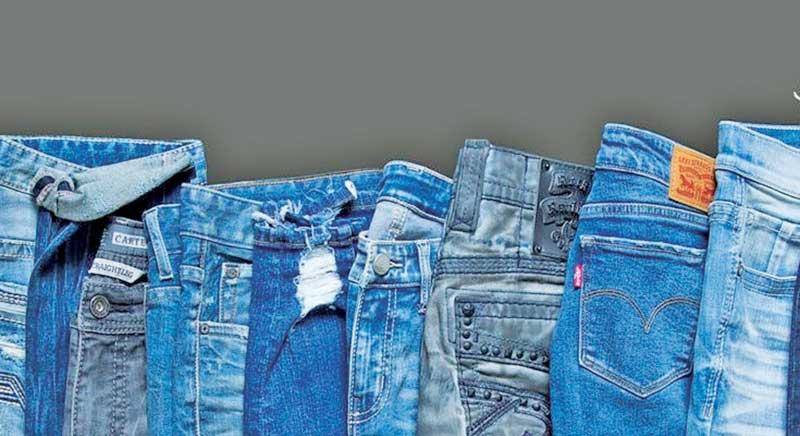
* Circular economy aims at eliminating waste and continual use of resources
* Fashion industry, the second largest polluter in the world
Over 400,000 redesigned jeans will be in the market by 2021 following the global acceptance of the Jeans redesign project which has been endorsed by over 16 global companies, Lead of the Ellen MacArthur Foundation’s ‘Make Fashion Circular’ initiative, Francois Souchet said at a workshop conducted by the Hirdaramani Group and the Ellen MacArthur Foundation for academics and students in the fashion industry last week.
Leading fashion brands and manufacturers are to transform the way they produce jeans, tackling waste, pollution and the use of harmful practices, in line with guidelines published by the Ellen MacArthur Foundation.
The Jeans Redesign guidelines set out minimum requirements on garment durability, material health, recyclability and traceability. Based on the principles of the circular economy, the guidelines will work to ensure jeans last longer, can be easily recycled and are made in a way that is good for the environment and the health of garment workers.
The Jean Redesign project created by the Ellen MacArthur Foundation’s make fashion circular initiative brought together over 40 denim experts from academia, brands, retailers, manufacturers, collectors, sorters and NGOs to develop the guidelines.
Confirmed participants to date include Arvind Limited, Bestseller, Boyish Jeans, C&A, GAP, Hirdaramani, H&M Group, HNST, Kipas, Mud Jeans, Reformation, Sai-Tex and Tommy Hilfiger.
A circular economy referred to as ‘circularity’ is an economic system aimed at eliminating waste and continual use of resources. Circular systems employs recycling, reuse remanufacturing and refurbishment to create a closed system minimising the use of resource input and the creation of waste.
The fashion industry is the second largest polluter in the world after the oil industry. It is estimated that over 70 million trees are logged annually to manufacture fabrics such as rayon and viscose contributing to climate change. It is also said that over 70 percent of what is produced in the fashion industry ends up in landfills globally.
“Keeping products and material in use is core in Asia. Europe has lost out in making the most out of products and materials.
One third of soil in the world has been destroyed and only around 50 percent of topsoil is left for cultivation. All products made of biological material must be safely released to the environment,” Souchet said.
Hirdaramani, a pioneer in the industry through its collaboration with the Ellen MacArthur Foundation joined a list of global industry stakeholders, corporations, NGOs and fashion houses such as Burberry, NIKE, PVH and Stella McCartney who have pledged to incorporate circularity into the core of their business.
Hirdaramani Group Director Nikhil Hirdaramani said the company is delighted to welcome the team from the Ellen MacArthur Foundation to Sri Lanka and added that the Group is optimistic that participation in the Jeans Redesign project will positively impact all industry stakeholders in the journey toward a circular economy.
“We are conscious of our position as one of the largest global manufacturers of jeans. The Group has signed up as one of the 16 global drivers of the Jeans Redesign project,” Hirdaramani said.
The Group has made considerable progress in the sustainable manufacturing space. In its washing plants the company has reduced water use drastically by employing low liquor ratio washing machines and waterless washing through ozone technology.
The company has placed emphasis on using only green screen chemicals in the manufacturing process and meeting ZDHC standards.
Across the Group, there is a strong focus on reducing waste to landfills and currently waste reduction is around 70 percent.
The Group which reached a net zero status in emission from energy, plans to set up a ‘Discovery Lab’ for product innovation and technology, where future leaders would get an opportunity to interact with experts in the global apparel industry.
